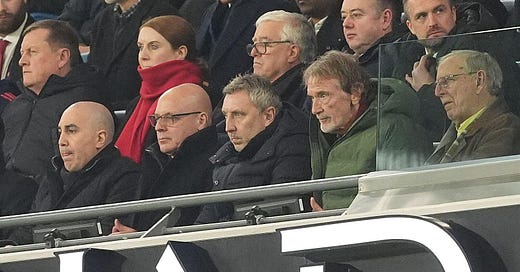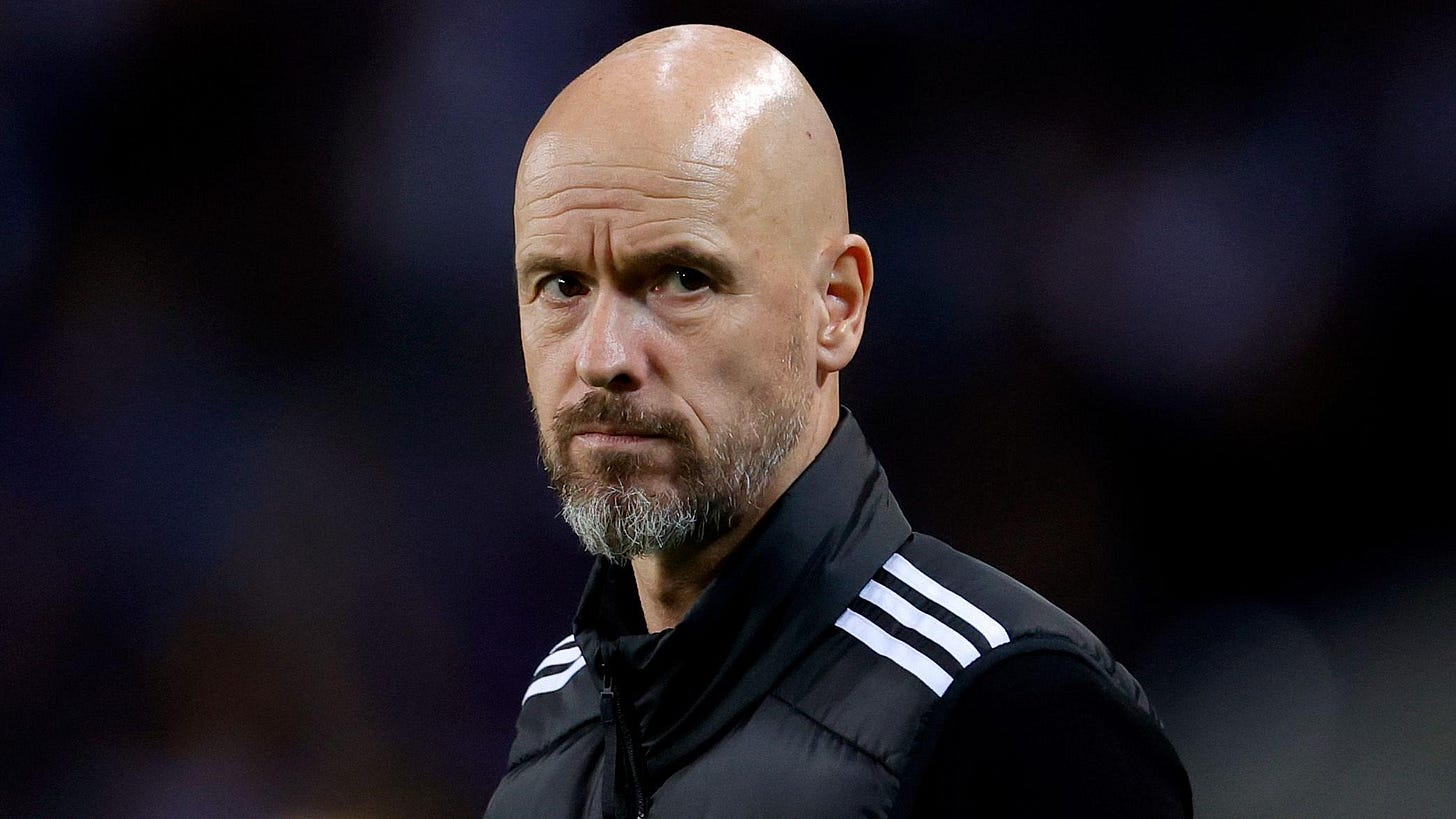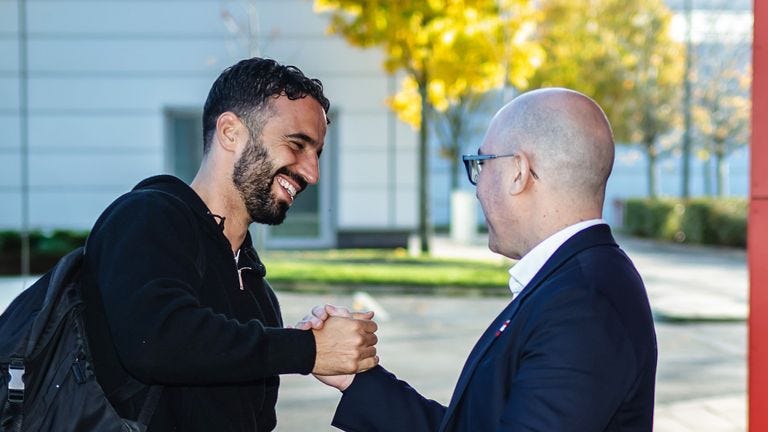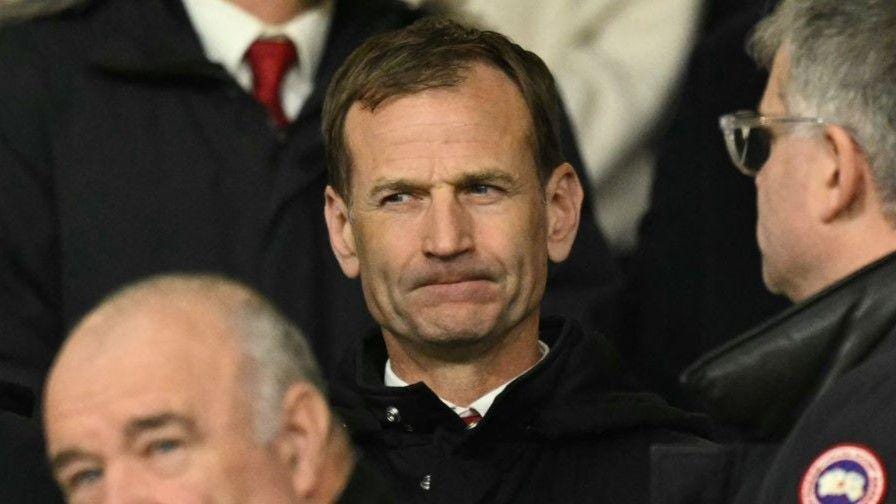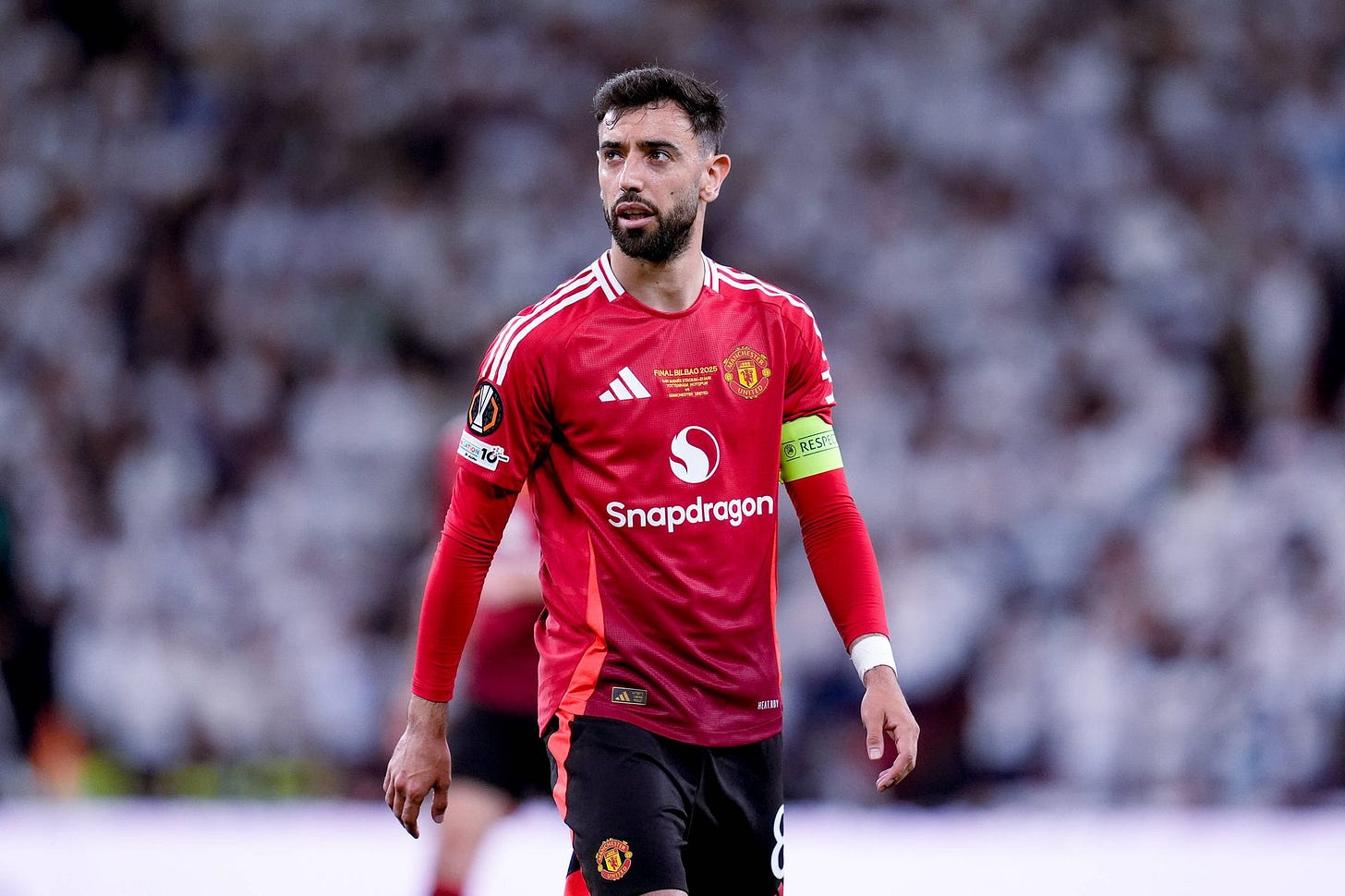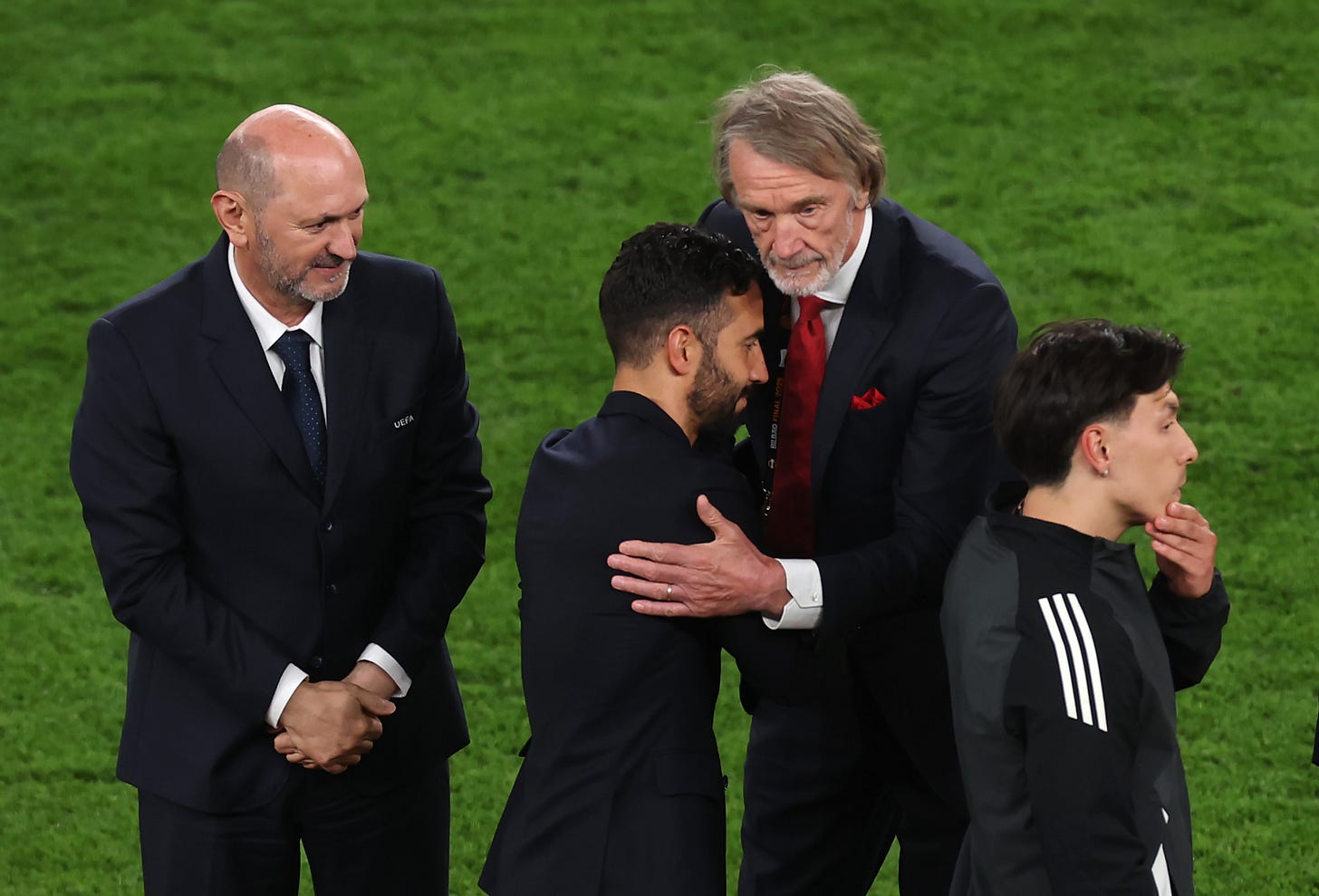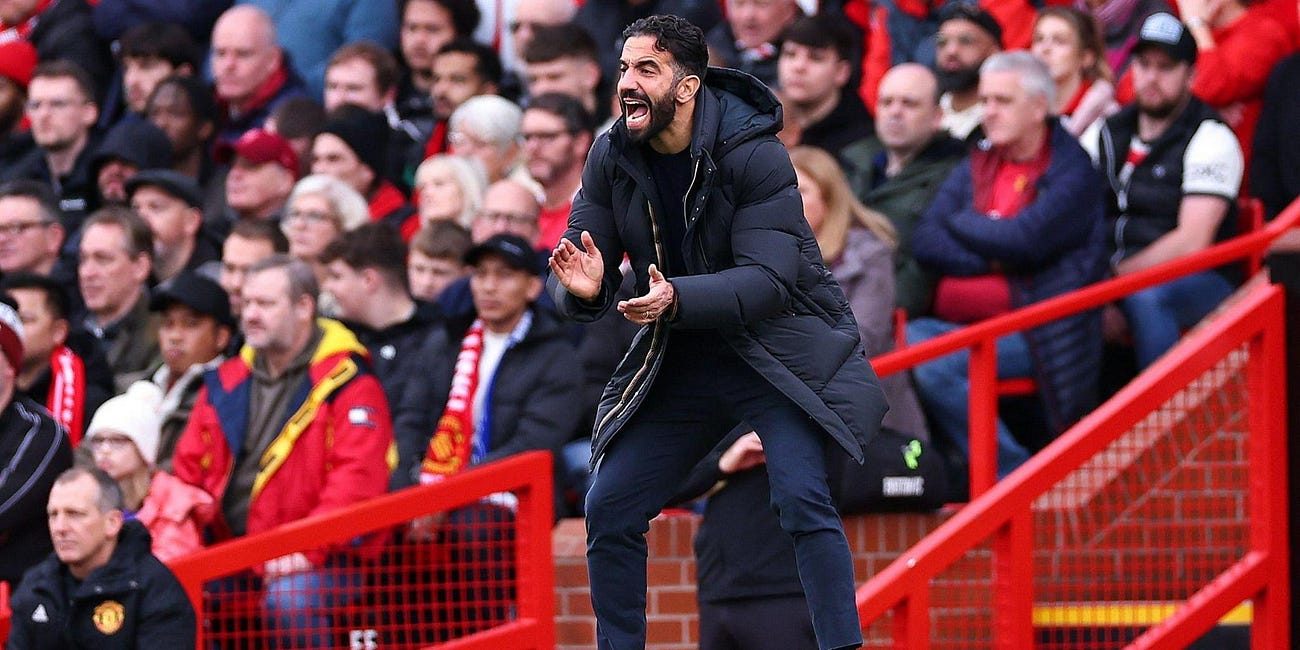Manchester United - Collatz Conjecture Part 1 - The Board
A 3 part series as to why Man Utd has become akin to solving the unsolvable math problem, beginning with how INEOS inexplicably threw the club into more turmoil on the pitch with its decisions off it.
There’s a math problem. Thus far, it remains unsolved. It is called Collatz Conjecture. The premise is this – pick a positive integer. As large as the eye can see. If that number is positive, you half it. Odd? Multiply by three and add 1. The problem remains unsolved because eventually you always find yourself in a loop. You get down to 1. Then you multiply by 3, add 1 to get 4. Then half to 2. Then half again to 1. Then you multiply by 3, add 1...
There’s a problem at Old Trafford. Thus far, it has remained unsolved. The problem? Manchester United cannot get back to the pedestal of yesterdecade. The premise to solve it has been simple - pick a number. As large as the eye can see. Got it? Well, more has been spent trying to fix the problem of bringing the former glories back to Man Utd. The problem remains unsolved because no matter what the money is spent on, it never seems to get them close. In fact, it is taking them further and further away…
Some call it insanity. The Einstein quote of replicability of a bad action being the definition of it. The only thing that has driven Man Utd fans insane is the replicability of all the bad actions that has made the club a terrible team for the past 11 years. With every bad season, some better than others, the sanity is chipped away more and more. Each season, the challenge of getting Man Utd back to the top looks more and more unsolvable.
The New Band
One of the men tasked with turning it around was Erik Ten Hag and skipping to the meat of it all, it was quite the crippling experience. Concessions would usually be made for such the whirlwind contended with in his tenure. Off the pitch problems with players, in perhaps every way possible, and board level issues that included a takeover hanging over his head. Further concessions would be made for what he achieved in his first season: two domestic cup finals (winning one); a 3rd place finish and a quarter final exit in the Europa League. When you consider the wider context of his reign, the fact that it came to a point where he was looked at as a primary problem, it pointed to a significantly poor job done.
Ten Hag is no longer at the helm, though. That is now Ruben Amorim. Not before the Dutchman was kept for the summer and given players to his liking one more time before being booted out the door a mere 2 months later. The idea was to bring the young manager to the club mid-season, begin their rebuild during the season in preparation of using the mistakes made to storm up the table the next year. The former Sporting manager came in with the club at 14th, a few points off top four. It was distant enough considering that the season was barely a third of the way through but the two thirds left was enough to still cancel out and enhance the position. But it never seemed to get better.
In the present day, it is only 7 wins from a possible 28 games. Everton, Man City, Southampton, Fulham, Ipswich, Leicester and Aston Villa. Three of those have been relegated from the Premier League. Three didn’t end the season with the same manager they began with. 2 came before Christmas. Man City were on a generationally bad run when we managed to turn them over at the Etihad, as well. A lowly 15th in the Premier League with a string of results that would make a relegation threatened manager grimace. It is a wonder how he survived (but I’ll come to that discussion later).
Perhaps the solace of the backdown entry and the warmth of the vase-shapen trophy, that is the Europa League, gave some sort of get-out-of-a-jail free card to justify it. The Red Devils managed to keep getting through, in spite of their many shortcomings. But it is the present day and that trap card is no longer as Tottenham managed to save their own disastrous season, as they overcame Amorim’s Reds. The reality hit plenty once that final whistle blew in Bilbao, but it was malignant way before then. So what’s to blame? Or rather, who?
A Dirtier House
All that can be said of the first proper season with the club in the clutches of INEOS is that it proceeded to be as messy as it was under the full control of the Glazers. Only now the results and cold hard facts are finally showing what the poor decisions should beget.
Those board level issues were supposedly sorted. In rode a ‘The Red Manc Knight’, in the figure of Sir Jim Ratcliffe heading INEOS, along with Jean Claude Blanc and Dave Brailsford. Omar Berrada, Jason Wilcox and Dan Ashworth were appointed in footballing executives roles, with the thinking being that their expertise would come together in propelling United back to where it once was.
The warning signs were there when you consider the juxtaposition between Ten Hag and Amorim. The latter even gave such misgivings that he would prefer waiting until the summer to give himself and the club the best chance. Man Utd pressed him into coming sooner. The other reportedly was Dan Ashworth. But you see, Ashworth is no longer here either. As long as it took him to come through the door, he was out of it. Purportedly, the fall guy for the decision to keep Ten Hag and deliver the summer of Leny Yoro, Joshua Zirkzee, Noussair Mazraoui, Matthijs de Ligt and Manuel Ugarte.
It is understandable that things get worse before they get better when the mass changes occur but there is a limit. No matter what, the decision to keep Ten Hag when managers were already being canvassed around Europe behind his back, effectively showing that he was not to their taste, is something out of amateur hour. The idea that his work for one window under a new technical leadership could outstrip the fact that the players were essentially done with him shows naïve thinking.
The former Brighton and Newcastle executive’s departure did not bring any uplift in the next transfer window however. Perhaps that could be because the pot had been spent in the summer and any additional wiggle room was wasted on sacking a manager that should have been gone prior to the summer transfers and getting in a director of football that was never fit for the remit that the INEOS hierarchy supposedly wanted. But I digress.
It brings an interesting point out of the people making the decisions, however. The two who had the biggest issue with doing it the way that INEOS wanted were the manager that they were trying to bring in and the, then, head of footballing operations. The branding of the new direction under their (footballing) ownership was “footballing people making footballing decisions”, putting it at odds with the regime that festered under the Glazers. So far, they have made the wrong decision at every turn. They have managed to come into a failing business and set the bar lower.
Something that needs to be noted about this regime is that while they have come with glowing reviews, they have done so in positions where they have never been the main man. Berrada was in a supporting role to Txiki Berigistain and Ferran Soriano, where he initially focused on the commercial side at the beginning of his time with Man City. A promotion and move into a totally different club with a complete dysfunction in the way it works is massive for what is a relative novice.
Wilcox was head of youth development at Man City and had a few months with a director of football role with Southampton before becoming technical director with us. Of course, the debacle of Ashworth is why he has a more prominent role than he should but this is similar to Berrada. They are coming into a monster club in the midst of one of it’s worst periods without the needed experience behind them.
It has been entrenched even further with reports confirming that Wilcox has gone from de facto to de jure in terms of Director of Football status. Within the space of a 2 years, the ex-Blackburn man gained a position that many think should be held by someone with much more experience in the operations Wilcox will be dealing in. Christopher Vivell has been parachuted in for purely recruitment purposes and he does have experience heading an operation of a relatively good size but he is focusing on just one aspect. While competency is incredibly important, and they could have that in spades, experience in times of trouble is probably more invaluable.
$ome $erious $ituations 4 United
These aren’t decisions that can be made lightly or with the luxury of knowing that it can discarded for a new toy either. As harkened to earlier, these decisions have a cost. Both actual and opportunity. The actuals totalled to almost £20m. The opportunity was a lost pre-season with a new coach, players better suited to his way of playing, a better and wider selection of coaches to pick from and a larger budget. That’s not to speak to the fact that ordinary people, outside the playing and coaching staff, have been made redundant due to the rising costs. The potential easement of these costs? Around the £20m mark.
United are no longer in a position to pick a number as large as the eye can see. Those times have gone, as the money tree has fully been shaken and all that can be seen are the leafless vines. The PSR situation was stark and had been since COVID plunged the world into mayhem. A club that was once so flushed with a bank balance that almost topped £200m, is now living on a credit facility and the behest of the generosity of its partial owner. The club has been chasing its tail since and it has gotten worse and worse as they don’t seem to achieve the success that could give them the income that they so dearly need. That is why decisions such as Ten Hag and Ashworth are doubly gutting to the cause.
That reality sinks in even deeper without the backdoor entrance to the Champions League via a Europa League triumph. The difference in revenue is almost £150m when you take into the account the loss of income via match day, sponsorship and broadcast related to getting CL football in comparison the European free season that will be taking place next year. Even harder decisions than the redundancies will have to be made. It’s much easier to cast away the members of staff when they aren’t as integral to the business.
Now there are decisions about the players, which are much more costly. Take Bruno Fernandes for example. Easily the most valuable member of the team, thus the most sellable asset. The disparity in quality that has been on display this season, compared to his team mates, would suggest that is someone you keep in every circumstance. The reports of the £100m offer from the Saudi Pro League were true and it was thought that this sum would provide the breathing room for the P&L, cash flow and PSR that would facilitate for a squad rebuild. As it turned out, Bruno was convinced by both the manager and hierarchy that 1. He was still a key figure in the team and 2. His sale wasn’t necessary to bring the squad along to where it can compete.
Further reporting of United’s financial position shows that, in terms of PSR, there is a lot more headroom than previously thought. A fact not known until recently, PSR is tested only on UK registered companies, which Manchester United PLC is not. Red Football Ltd is therefore the tested accounts and the big exceptional items related to the partial takeover, debt related swings and currency related swings are not quite as big. How large? Well, the difference came to just under £100m and this is before the allowable deductions on youth, women’s football and infrastructure that PSR allows. This bore very little relevance before because the difference between these two accounts was barely anything (2023-24’s difference was a mere £4m) but today, it is a welcome bit of good news as it allows for United to be unconcerned about PSR.
There is still a cash issue and while PSR safety is cast asunder for the time being, the whole consolidated accounts is still a concern. The feedback on the Q3 numbers were along the lines of INEOS being proven right with their thrifty and budget cutting ways but it does not take into the account the reduction of wages that came with the mid season departures such as Antony and Marcus Rashford. The two aforementioned players, along with Jadon Sancho after Chelsea gladly paid £5m to be rid of his financial headache, are probably going to have to a temporary solution yet again or a more permanent one to our bottom line, by being paid off some of their contract in order for them to leave.
Further to that fact, Man Utd simply had more games this year than they did last year. Going out of Europe completely in 23/24 was both a disaster on the pitch and financially. The lack of games meant less income from matchday, sponsorship and broadcasting. The deep run in the Europa, whilst nowhere near as lucrative as just getting into the Champions League, still allowed for more favourable results. Furthermore, the whole team had a wage reduction of ~20-25%, due to not being the Champions League, again providing an uplift on the wages the previous year. The true worth in these numbers will be when compared to next year to see how much has really been done to reduce the cost burden that Man Utd have built up.
Heat Is On, Lights are Flashing
Even then, if there is anything that can be said of INEOS, it is the simple fact that they have come in and run United as if are any other business and not accounted for the quirks that football can and will throw up. The cultural atmosphere of a club is such a delicate balance that tinkering with it, like the layoffs, is harder to get back than it is to lose. Such folly use of money outlined above could be said to have lost more people their jobs, given only one round of redundancy was supposed to happen.
Ratcliffe came in with a lot to say about how badly Manchester United has been run, how it needed to stripped and rebuilt. The problem is that, Man Utd are like a different business in a different business when it comes to football clubs. A dropped nail at Old Trafford makes a larger noise than chopped tree at 99% of other clubs in the country. The cruelty of elite sport is that it has a way of kicking you when you’re down until you manage to struggle your way up and fight back. Results roll in weekly and it mounts pressure. No one goes to watch the employees bottling chemicals processing at an INEOS factory then discuss their proficient at doing it ad nauseum.
Money has been invested from their pockets. At least $300m, courtesy of Jim Ratcliffe and INEOS. But if there is a true desire to put the club back in the time frame they have suggested (2028, coinciding with the club’s 150th anniversary), then the idea of taking on the short term losses for long term gains is an approach that simply has to be undertaken. This is not just on the pitch, but off it too. These things have been made even more difficult by the APT ruling that has essentially outlawed the preferential treatment that shareholder loans had but INEOS’s main reason for buying the club was not to make money. It was for a PR purpose, perhaps some altruism and the fact Ratcliffe is a Man Utd supporter.
Football clubs aren’t money spinners. The amount of effort and money you put in comparison to the profit you get out of it, it truly isn’t worth it. The benefits of having a successful football club is the ability to keep yourself in public consciousness, in terms of marketing and even politically. The operative word is successful. It might seem backwards that you have to invest hundreds of millions to potentially top out at tens of millions profit but football will always hold such a culture significance that it will be worth its weight in gold to any investor that has the means to buy one. With that comes pressure. The pressure for Ratcliffe and co is on. Now, the focus is breaking out that loop of repeating the bad habits and this summer can go a long way to doing that. It is something that he will have to live with if he truly wants to take this club back to where he wants it to be.
Part 2 - Amorim, why he was unable to address the slide towards the Premier League backdoor and if that was a sign of him not being the man to lead the club forward - below
Manchester United - Collatz Conjecture Part 2 - The Manager
ICYMI, the first part looking at the board’s culpability

